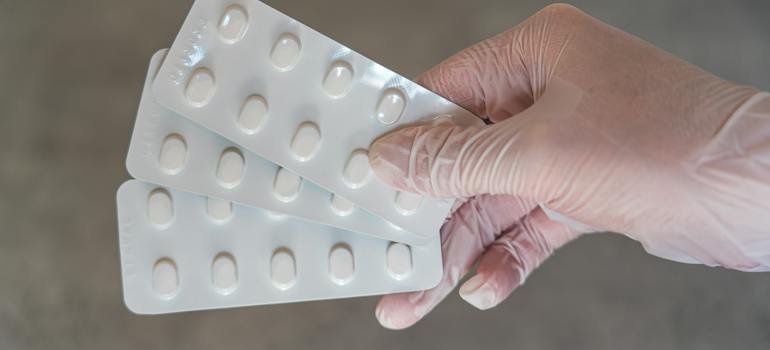Ritalin serves a useful purpose as a medication prescribed to help people with attention deficit hyperactivity disorder (ADHD). It improves focus and reduces impulsivity. When used as directed, it can be beneficial. However, its stimulant effects lead to misuse among adults, which raises concerns. Harmony Ridge Recovery Center will explore the connection between Ritalin and adult substance use in West Virginia, the reasons people misuse it, and how we can treat this issue.
West Virginia Has a Severe Drug Addiction Problem
West Virginia is dealing with a serious drug addiction problem, ranking high in the U.S. with 1335 reported overdoses in 2022. Many things contribute to this issue, and one factor is the misuse of medications like Ritalin. This emphasizes the need for effective strategies, effective treatment options, and easy access to a stimulants addiction rehab center in WV to address substance abuse and its impact on the state.

The Role of Ritalin in Treatment
We use Ritalin in the treatment of attention deficit hyperactivity disorder (ADHD). When prescribed and used as directed by healthcare professionals, Ritalin helps people with ADHD manage their symptoms effectively. The medication primarily works by increasing the levels of certain neurotransmitters in the brain, leading to improved focus, reduced impulsivity, and enhanced attention span.
Ritalin can be an important part of a treatment plan for those diagnosed with ADHD. It helps manage the main symptoms of the disorder, which makes it easier to handle daily tasks, academic tasks, and social situations. Ritalin promotes a sense of calm and control, which improves overall well-being and functionality for those with ADHD.
The Potential for Ritalin Misuse
Ritalin has many therapeutic benefits. However, many people misuse it, which is a growing concern. Ritalin is a medicine that stimulates the central nervous system and can have unintended effects when misused. People misuse Ritalin by taking more than what is prescribed or using it without a valid medical need. Ritalin can create a sense of euphoria and increased energy levels, which is why some people seek these sensations.
Misconceptions about the ability of Ritalin to enhance cognitive performance in people without ADHD have led to its misuse among students and professionals seeking improved concentration and academic or work performance. Also, Ritalin is easily accessible. Improper sharing of prescribed medications or unauthorized acquisition can lead to adverse effects such as an increased heart rate, elevated blood pressure, anxiety, and addiction.
How Ritalin Misuse Leads to Substance Use Disorder
Misusing Ritalin can lead to substance abuse because it produces a feeling of euphoria and extra energy. People might keep misusing it to keep experiencing these sensations. Additionally, some use Ritalin to cope with stress, academic pressure, or work demands, finding relief in its stimulant effects.
Even those initially prescribed Ritalin for medical reasons might misuse it. As the body gets used to the drug, some may raise the dosage to maintain the desired effects, unintentionally increasing the risk of substance abuse.
Ritalin Worsens Substance Abuse
The misuse of Ritalin can exacerbate existing substance use disorders in several ways. First, individuals with pre-existing dependencies may incorporate Ritalin into their substance use patterns, leading to a more complex and challenging addiction profile.
Second, Ritalin misuse can increase the negative health consequences associated with substance abuse. The combined effects of multiple substances can intensify cardiovascular strain, increase the risk of overdose, and contribute to mental health issues such as anxiety and depression.
Furthermore, Ritalin misuse may foster a normalization of polydrug use, where people engage in the simultaneous misuse of various substances. This complicates the treatment process and requires a more comprehensive and tailored approach to address the intertwined dependencies effectively.
Treatment Options for Ritalin Abuse
As there is a strong connection between Ritalin and adult substance abuse in West Virginia, it is important to treat this issue using different approaches to addiction therapy in West Virginia. To treat Ritalin abuse, we use the following:
- Dialectical behavioral therapy
- Motivational interviewing
- Medication-assisted treatment

Dialectical Behavioral Therapy
Dialectical behavioral therapy (DBT) is a specialized therapeutic approach designed to assist individuals in managing intense emotions, enhancing interpersonal skills, and ultimately fostering behavioral change.
DBT is typically conducted in both individual and group settings. In individual sessions, participants work closely with a trained therapist to address personal challenges, set goals, and develop coping strategies. Group sessions provide a supportive environment where individuals can practice new skills, share experiences, and receive feedback.
The key components of dialectical behavior therapy in WV are:
- Mindfulness skills: Participants learn to stay present in the moment, fostering awareness and acceptance of thoughts and emotions without judgment.
- Distress tolerance: Focuses on developing healthier ways to cope with crises and intense emotions without resorting to harmful behaviors.
- Emotion regulation: Equips individuals with tools to identify, understand, and manage their emotions effectively, promoting emotional stability.
- Interpersonal effectiveness: Teaches communication skills, boundary setting, and conflict resolution to enhance relationships and reduce interpersonal challenges.
The Benefits of DBT
DBT is particularly effective for individuals struggling with Ritalin misuse as it addresses the underlying emotional and interpersonal factors contributing to substance misuse. By providing a comprehensive set of skills, DBT empowers people to handle challenging situations, regulate their emotions, and cultivate a more balanced and fulfilling life. The combination of individualized attention and group support enhances the effectiveness of DBT in promoting long-term recovery from Ritalin misuse.
Motivational Interviewing
Motivational Interviewing (MI) is a client-centered therapeutic approach aimed at exploring and resolving ambivalence toward behavioral change. It emphasizes collaboration between the individual and the therapist to evoke intrinsic motivation for positive transformations. MI involves structured conversations where the therapist actively listens, empathizes, and guides the individual toward recognizing the need for change. The focus is on fostering internal motivation rather than imposing external pressure.
The key principles of motivational interviewing for addiction are:
- Expressing empathy: Therapists convey understanding and compassion, creating a supportive and non-judgmental space for individuals to express their feelings.
- Developing discrepancy: Encourages individuals to explore the inconsistencies between their current behaviors and their broader life goals, enhancing motivation for change.
- Rolling with resistance: Instead of confronting resistance directly, therapists acknowledge and navigate it, creating an environment that reduces defensiveness.
- Supporting self-efficacy: Reinforces individuals’ belief in their ability to make positive changes, fostering a sense of empowerment.
The Benefits of MI
Motivational interviewing is particularly effective for individuals dealing with Ritalin misuse by tapping into their intrinsic motivation to change. By facilitating open and collaborative discussions, MI helps people recognize the impact of their behaviors and empowers them to set and pursue meaningful goals. This approach respects the autonomy of the individual, making it a valuable tool in the overall treatment strategy for addressing Ritalin misuse and fostering sustained recovery.

Medication-Assisted Treatment
Medication-assisted treatment (MAT) is a comprehensive approach that combines medications with counseling and behavioral therapies to address substance use disorders effectively, including those related to Ritalin misuse. Under the supervision of healthcare professionals, MAT involves the prescription of FDA-approved medications tailored to your specific needs. This is complemented by counseling and therapeutic interventions to support the recovery process.
The key components of MAT include:
- Medication prescription: The use of medications such as methadone, buprenorphine, or naltrexone to reduce cravings, manage withdrawal symptoms, and prevent relapse.
- Counseling and behavioral therapies: Combined with medication, counseling helps individuals address the psychological aspects of substance use, develop coping skills, and navigate the challenges of recovery.
- Medical monitoring: Regular medical check-ups ensure the safe and effective use of medications, with adjustments made as needed to support the individual’s progress.
The Benefits of MAT
MAT provides a structured and evidence-based approach to treating substance use disorders, including those arising from Ritalin misuse. The integration of medications helps stabilize the physiological aspects of addiction, allowing you to engage more effectively in the therapeutic process. The combination of medication with counseling addresses the multifaceted nature of substance use disorders, offering a holistic and personalized strategy for sustained recovery.
Specific Programs
To address the connection between Ritalin and adult substance abuse in West Virginia effectively, we need rehabilitation programs that we can adapt to the unique needs of specific groups. This is a complex issue, and personalized rehab is necessary. Some of these groups include the following:
- Veterans
- Seniors
- Professionals

Rehab for Veterans
Drug rehab for veterans takes into account the unique challenges that veterans face and provides specialized support to help them overcome these challenges. The program uses a trauma-informed approach, which means that it recognizes the potential impact of military service on mental health. Drug rehab for veterans involves specialized counseling that addresses both visible and hidden wounds. The program also emphasizes peer support. It allows veterans to connect with others who share similar experiences.
This program creates a supportive environment that understands and honors the military background of the participants. Peer support provides a sense of understanding and helps to overcome the isolation that veterans might feel.
Rehab for Seniors
Rehab for seniors recognizes that seniors face unique challenges due to their age-related health issues and experiences. It takes into account the potential impact that age can have on the body and mind. Medical monitoring is an important part of the program, as it helps to address age-related health concerns. Additionally, rehab for seniors includes strategies to tackle social isolation and promote social connections among seniors.
Rehab for Professionals
Rehab for professionals helps people in high-stress professions who are dealing with substance misuse. This program understands the challenges that come with balancing work and recovery and has created a specialized approach to address these challenges.
The program recognizes the importance of privacy and the busy nature of high-stress careers and has designed the rehabilitation process to accommodate work schedules. This allows professionals to prioritize both their work commitments and their recovery process while providing a discreet and confidential environment.
Rehab for professionals acknowledges the balance between maintaining professional standing and addressing substance use issues. It offers you a supportive and discreet environment and allows you to recover without compromising your career.

Why Rehab Is Necessary
Rehab is necessary due to the following reasons:
- Structured support and supervision: This ensures a supportive setting where professionals can guide and monitor the recovery process, minimizing the risk of setbacks.
- Comprehensive treatment approach: Rehabilitation programs offer a comprehensive approach that addresses the physical, mental, and emotional aspects of substance use disorders. This makes treatment more successful.
- Peer support and community: Rehabilitation can provide an opportunity for people to connect with others who have gone through similar experiences. Peer support gives you a feeling of community, and shared understanding provides encouragement and a shared dedication toward overcoming addiction.
- Professional guidance and counseling: These professionals guide you through the complexities of substance use issues. They will provide you with personalized counseling and evidence-based therapies to address underlying causes.
- Medical monitoring and intervention: Rehabilitation programs monitor your physical health when you are undergoing treatment for substance use. This helps to detect any medical issues early on and supports their overall well-being.
- Skill development and coping strategies: Rehabilitation programs teach you important skills and strategies for maintaining long-term recovery. These skills go beyond the treatment period and allow you to handle challenges and avoid triggers that could cause a relapse.
- Structured detoxification: If you need to detoxify your body from drugs or alcohol, rehab centers provide a safe and structured process to help manage your withdrawal symptoms. During this critical phase, medical professionals will monitor you closely and provide necessary interventions to ease any discomfort you experience.
- Prevention of relapse: Rehabilitation programs help you identify triggers that may cause you to relapse. By giving you the necessary tools to recognize and cope with these triggers, rehab significantly reduces the risk of returning to substance misuse.

Overcoming Ritalin and Adult Substance Abuse in West Virginia Starts with Seeking Help
It is important to recognize and address the link between Ritalin and adult substance abuse in West Virginia. This can help us create a healthier and more resilient community. By understanding this relationship, we can develop effective strategies for preventing and dealing with these problems. We need to look at addiction as a disease that can be treated with the right approach. If you or someone you know is struggling with Ritalin misuse or substance abuse, it is important to seek help right away. With professional assistance, you can take proactive steps towards recovery, well-being, and a brighter future.



